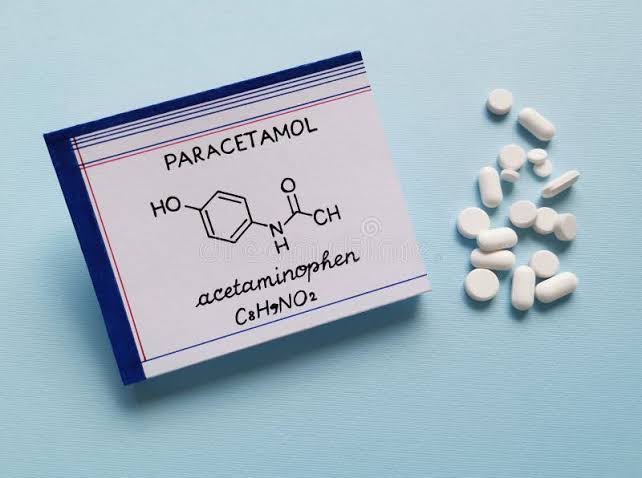Paracetamol, also known as acetaminophen, is a widely used over-the-counter (OTC) medication for relieving pain and reducing fever. Here is a detailed description of paracetamol:
Chemical Name: N-Acetyl-p-aminophenol (APAP)
Molecular Formula: C8H9NO2
Therapeutic Class: Analgesic (pain reliever) and antipyretic (fever reducer)
Mechanism of Action:
- Paracetamol works by inhibiting the production of prostaglandins, which are hormone-like substances that cause pain and fever.
- It blocks the enzyme cyclooxygenase (COX), which is responsible for prostaglandin synthesis.
Pharmacokinetics:
- Absorption: Rapidly absorbed from the gastrointestinal tract
- Distribution: Widely distributed throughout the body
- Metabolism: Primarily metabolized in the liver by glucuronidation and sulfation
- Excretion: Excreted in the urine
Uses:
- Relieving mild to moderate pain (e.g., headaches, toothaches, menstrual cramps)
- Reducing fever
- Relieving symptoms of colds and flu
Dosage Forms:
- Tablets
- Capsules
- Liquid suspensions
- Suppositories
- Intravenous injections (for hospital use only)
Common Side Effects:
- Nausea and vomiting
- Headache
- Dizziness
- Fatigue
Serious Side Effects (rare):
- Liver damage (hepatotoxicity)
- Allergic reactions (anaphylaxis)
- Blood disorders (e.g., thrombocytopenia)
Contraindications:
- Hypersensitivity to paracetamol
- Severe liver disease
- Chronic alcoholism
Interactions:
- Warfarin (increased risk of bleeding)
- Anticonvulsants (reduced efficacy)
- Alcohol (increased risk of liver damage)
Overdose:
- Can cause severe liver damage and potentially be fatal
- Symptoms include nausea, vomiting, abdominal pain, and confusion
- Treatment involves supportive care and potentially N-acetylcysteine (NAC) antidote
Remember to always follow the recommended dosage and consult your healthcare provider if you have any concerns or questions.

